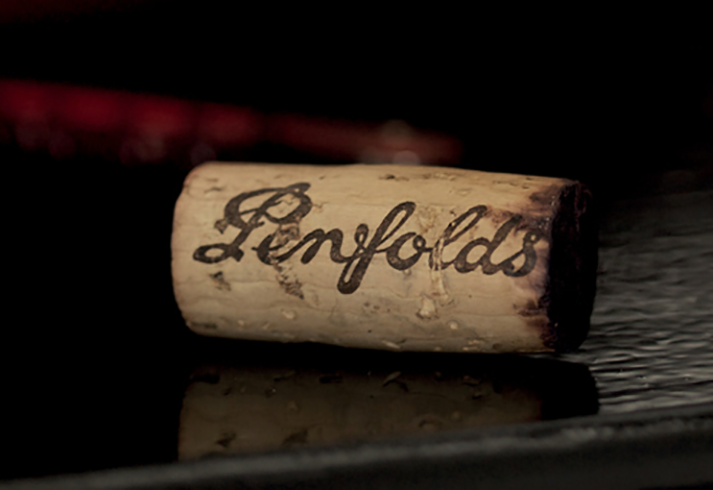
Treasury Wine Estates has been selling its Penfolds label on Alibaba’s B2C shopping site, Tmall, since 2015, but the relationship has been more than just a commercial one. The two companies have also worked together on brand-protection initiatives. That collaboration has included everything from TWE joining Alibaba’s Good Faith takedown program, becoming a member of the Alibaba Anti-Counterfeiting Alliance and a number of enforcement actions that included partnerships with law enforcement to track down the offending counterfeit network offline. Alizila spoke to Anna Gibson, TWE’s director of intellectual property, about these initiatives and more.
You joined the Alibaba Anti-Counterfeiting Alliance a year ago. Could you talk about why you thought it was important to join and your participation so far?
Our initial collaboration with Alibaba began in 2017 when we started using the company’s notice-and-takedown platform. We were later invited to join Alibaba’s Good Faith takedown program, which was an exciting step for us because it led to a stronger relationship with Alibaba’s Brand Cooperation Team. That relationship allowed for more efficient enforcement against online listings and broader investigations, and then we joined the AACA.

From my perspective, the AACA opened the door for us as a brand owner to form a smooth and efficient way of working with Alibaba’s Brand Cooperation Team on enforcement actions both online and offline. It’s been a hugely positive experience since joining a year ago.
Within the Alliance, we’re a member of thealcoholandtobacco industry working group, which brings together brands owners from both China and internationally to discuss new trends and share best practices. The industry working groups are what sets AACA apart. The alliance provides a forum to advance global IPR protection efforts not just on behalf of our own brand, but also on behalf of our industry.
Offline enforcement has been a huge part of your collaboration with Alibaba as well, right?
Absolutely. We’ve worked with both Alibaba and local law enforcement on a number of offline enforcement actions in recent years. For example, early this year we were contacted by the Liaoning branch of China’s Public Security Bureau about the sale of potentially counterfeit Penfolds wines. Once the wines were verified as counterfeit, we worked with law enforcement and Alibaba to track down the counterfeiting network that was producing them. In April, the police raided the facilities where these fake Penfolds wines were made – in six facilities in four cities.
TWE also collaborated closely with Alibaba and the Public Security Bureau on our first online-to-offline case to find and break up a complex counterfeiting network in Shanghai and the southern coastal city of Xiamen in late 2017. As a result of this case, the criminals were sentenced to prison earlier this year.
The success of these offline enforcement collaborations shows why it’s important for brand owners to collaborate with Alibaba to protect their IP rights. It was Alibaba’s technology that enabled law enforcement to locate and enforce our IP rights against a full counterfeiting supply chain across multiple provinces in China. These cases have also served as a strong deterrent to counterfeiters, while also serving to affirm public trust in TWE’s products and brands.
What other successful collaborations can you point to?
We are also working with Alibaba on a number of new initiatives as a part of the AACA, including live Q&A sessions during Alibaba’s 9.9 Wine Festival, where consumers can ask questions about our company and how to ensure they’re buying authentic TWE wines. It’s a great opportunity for consumers to get useful buying tips, while we get to boost engagement with our customers ahead of the festival.
In addition, we’ve partnered with Alibaba on training programs for law enforcement as well as workshops with Alibaba’s online enforcement team to share knowledge and best practices in IP protection. This initiative provides us with a great opportunity to engage with authorities to drive better awareness.
Why is it so important for rights holders, law enforcement and e-commerce platforms such as Alibaba to work together on IP protection?
Rights holders have knowledge of brands and products, as well as a comprehensive understanding of industry trends and the specific characteristics that are inherent to counterfeiting. Law enforcement authorities have expertise in field investigations and enforcement. And e-commerce platforms have advanced technology and robust tools for investigating and fighting counterfeits. Accordingly, hand-in-hand collaboration with each other can result in great IP protection achievements.
How has the success of the joint efforts on IP protection with Alibaba strengthened your business performance?
Our world-renowned wine brands, such as Penfolds, are some of TWE’s most important assets, and we treat the protection of our brands with the utmost priority. In this regard, the implementation of a strong brand-protection program, involving close collaboration with Alibaba and other online marketplaces, has been pivotal to affirming trust in our products and brands. That in turn helps to foster greater consumer confidence in our products..
How do you see the collaboration with Alibaba continuing in the future? What areas will you focus on this year?
As a next step, we plan to ramp up our copycat enforcement strategy to demonstrate our zero-tolerance approach to all infringing products, which includes trademark office actions, lawsuits and online and offline monitoring and enforcement. As part of this initiative, we are exploring joint litigation opportunities with Alibaba as well.
We look forward to expanding our cooperation with Alibaba and exploring how we can continue to drive successful counterfeit and copycat enforcement actions across China. We also understand that Alibaba is extending its brand-protection program to Southeast Asia market though Lazada. So, we’re excited about seeing positive enforcement results on this platform as well.




